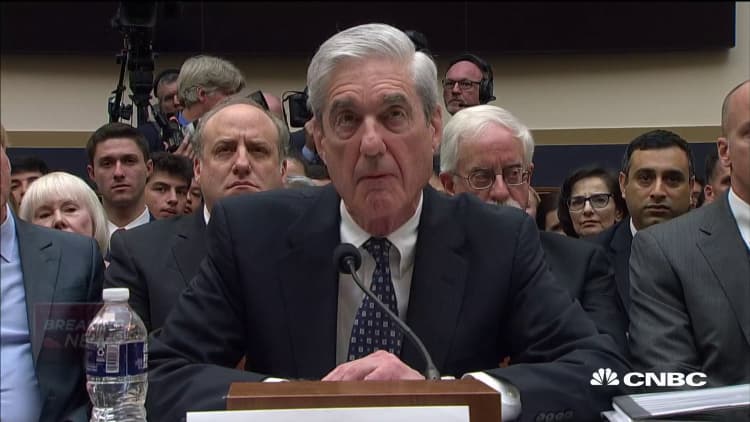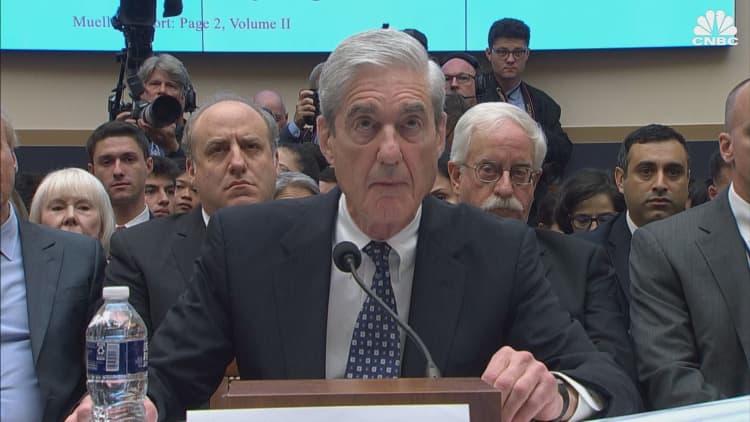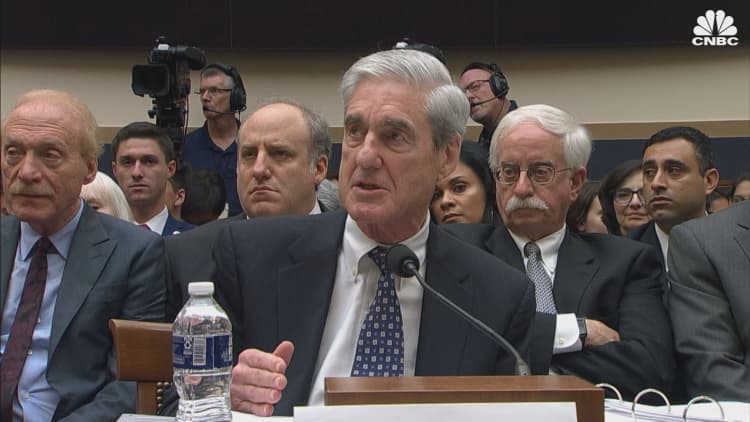
In a historic trip to Capitol Hill, Robert Mueller testified Wednesday that President Donald Trump was not "totally exonerated" by the special counsel's report on Russian election interference, as Trump has frequently claimed.
The former special counsel, who was answering questions about the probe for the first time since he took it over in May 2017, also testified that Trump could be prosecuted for potential crimes after he leaves office.
A Department of Justice legal opinion, which Mueller followed during his probe, states that a sitting president cannot be indicted.
Mueller was asked about the findings of his two-year investigation during a hearing before the House Judiciary Committee. He faces a second hearing before the House Intelligence Committee later Wednesday.
Judiciary Chairman Jerry Nadler, D-N.Y., asked Mueller if Trump was "correct" in his repeated claims that the report "found that there was no obstruction and that it completely and totally exonerated him."
"That is not what your report said, is it?" Nadler asked.
Mueller responded: "Correct. That is not what the report said."

Nadler later asked if it was true that "under Department of Justice policy, the president could be prosecuted for obstruction of justice crimes after he leaves office."
Mueller said that was "true."
From the early days of Mueller's appointment, Trump had railed against the special counsel, his team and its probe of Russian meddling in the 2016 election, possible obstruction of justice by Trump and possible coordination between the Trump campaign and the Kremlin.
When Attorney General William Barr released a memo in March revealing the conclusions of the report — that it did not find enough evidence to show Trump-Russia coordination and that it made no determination on obstruction — Trump declared victory in a tweet.
"No Collusion, No Obstruction, Complete and Total EXONERATION. KEEP AMERICA GREAT!" the president tweeted.
Mueller had vowed not to speak beyond the contents of his 448-page report, and largely stuck to those guidelines. He had also been advised by the DOJ to narrow his remarks to the report, an intervention that some Democrats protested. Democrats have said they want Mueller to answer questions about the report and Trump during his testimony.
But Nadler, who began the hearing Wednesday morning by lauding Mueller for his integrity, continued in his line of questioning about the probe's conclusions themselves.
"Now in fact, your report expressly states that it does not exonerate the president," Nadler said.
"It does," Mueller said.
Nadler then asked: "Your investigation actually found quote 'multiple acts by the president that were capable of exerting undue influence over law enforcement investigations, including the Russian interference and obstruction of investigations.' Is that correct?"
Mueller said that was "correct."
Nadler continued: "Now Director Mueller, can you explain in plain terms what that finding means so the American people can understand it?"
Mueller said that "the finding indicates that the president was not exculpated for the acts that he allegedly committed."
Mueller later told Colorado Republican Rep. Ken Buck that "yes," Trump could be charged with obstruction of justice after leaving office.
"You believe that he committed — you can charge the president of the United States with obstruction of justice after he left office?" Buck followed up.
"Yes," Mueller responded.



